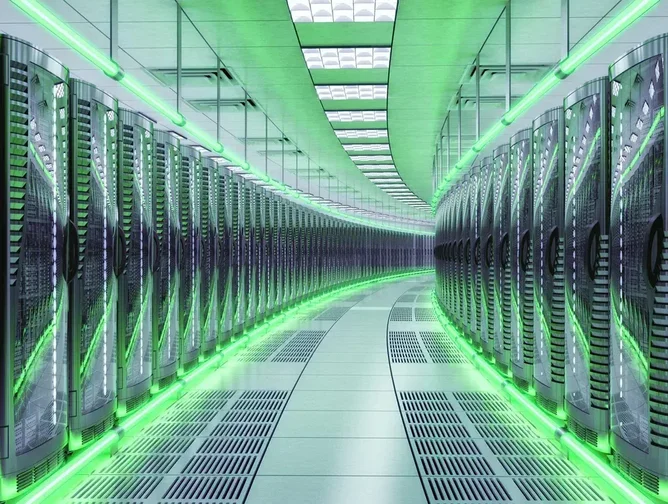Demand for energy-efficient cooling in data centres is surging, driven by AI growth. Yet, supply chain woes and rising material costs threaten progress.
Data centres play an essential role in powering our digital world, but keeping these facilities operational comes with significant challenges.
The demand for cooling solutions is surging, driven by high-performance computing needs and the growing importance of energy efficiency.
Yet, supply chain disruptions, material costs, and market shifts are adding pressure to this critical industry.
The rising importance of cooling in data centres
Data centres are at the heart of the digital economy.
From cloud services to AI, these facilities are indispensable for processing the increasing amounts of data generated worldwide.
However, their operation consumes vast amounts of energy, with cooling systems making up a substantial portion of this consumption.
Linesight research reveals that the need for efficient cooling technologies has never been greater.
Michael Riordan, Linesight’s UK Managing Director, explains: “AI and densification of data centres are keeping the sector on a high-growth trajectory and spurring investment in the UK. It brings with it an increased need for power and cooling solutions.”
Cooling systems, such as advanced HVAC setups and liquid cooling technologies, help maintain optimal operating temperatures while reducing energy use and carbon emissions.
However, sourcing this equipment is becoming increasingly challenging. Delays in supply chains, compounded by rising copper prices, are slowing construction timelines and hindering operational upgrades.
These disruptions, according to Linesight, are linked to supplier capacity issues and extended lead times, which could significantly impact the ability to meet growing data demands.
Michael adds: “Cooling solutions are rapidly emerging as a critical trend to monitor, with supplier capacity and lead times starting to be impacted.”
Supply chain pressures and material costs
Beyond cooling technologies, the broader data centre supply chain is feeling the strain.
Copper, a vital material used in wiring and components, has seen a price increase of up to 2.2%, further squeezing budgets. This rise affects not only data centres but also industries like electric vehicles (EVs), which also rely heavily on copper.
Linesight notes that robust supply chain management will be essential to navigate these pressures. Building strong supplier partnerships, improving demand forecasting and securing materials in advance are all strategies that operators must employ to mitigate risks.
Energy efficiency also ties closely to these supply chain issues.
While innovations like liquid cooling offer significant improvements, delays in implementation could slow the sector’s progress towards sustainability goals. This is particularly concerning as data centres are under increasing scrutiny to reduce their environmental impact.
Navigating future challenges
As global demand for AI continues to rise, the construction of data centres and the expansion of their capabilities will remain a priority.
However, Linesight warns that several challenges could complicate this trajectory. Skilled labour shortages, contractor availability and insolvency rates in mission-critical sectors are already presenting hurdles.
Richard Joyce, Linesight’s Managing Director for Europe, elaborates: “Prices for energy-intensive commodities are largely stable but may rise in select countries due to carbon taxes and levies targeting decarbonisation efforts. However, volatility in metal prices remains a concern.”
Richard also highlights the potential ripple effects of geopolitical events, including recent shifts in the US presidency and Germany’s coalition government collapse, which could lead to significant market adjustments.
These developments, coupled with the urgent need for grid enhancements and alternative energy solutions, add to the uncertainty facing the sector.
Despite these obstacles, the outlook for data centre investment remains positive.
Growth in infrastructure, industrial and energy sectors is sustaining momentum in construction. Most European countries are expected to see gains in output by 2025, though the UK and a few others may experience slight declines.
The challenges posed by supply chain disruptions and market volatility underscore the importance of resilience in the data centre industry.
By fostering collaboration with suppliers and embracing innovative cooling technologies, operators can better navigate these complexities and meet growing demands.



